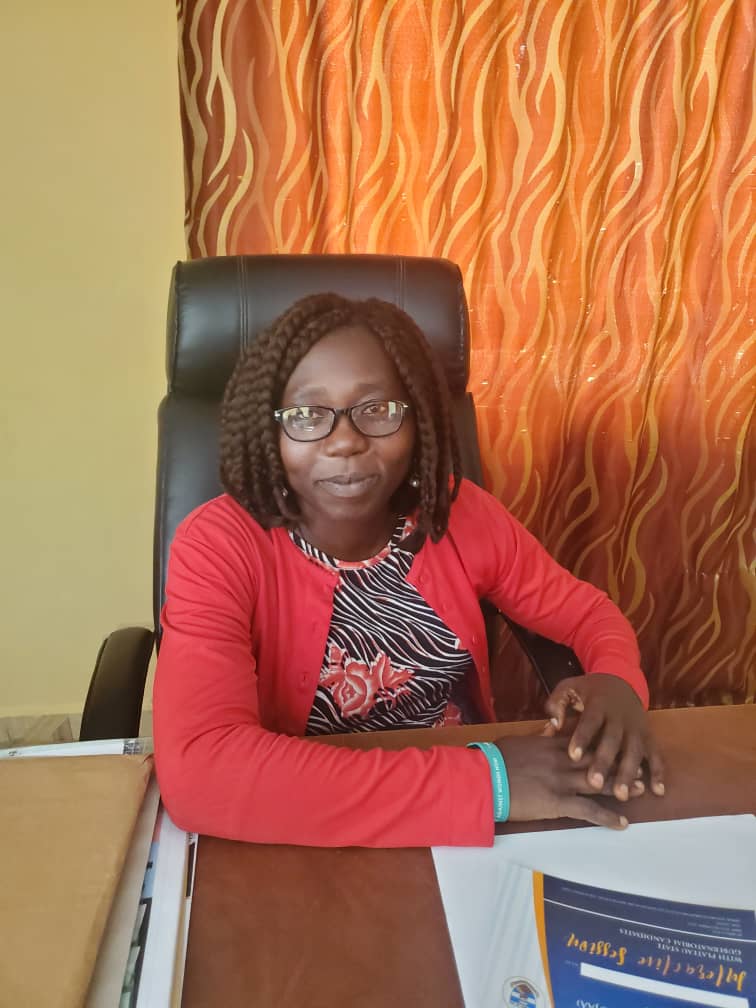Groundbreaking Workshop on AI and Technology-Facilitated Gender-Based Violence at AWiM24
Trending
Saturday May 24, 2025
Trending

Marie-Therese Nanlong is one of the three winners of the AWiM2022 Agenda 2063 Pitch Zone Awards.
Marie was among the winners announced during the closing ceremony of the sixth African Women in Media Conference (AWiM), which took place in Fez, Morocco on 9th December.
Each year, during the annual African Women in Media Conference, female journalists drawn from the continent are allowed to pitch stories in the five categories to organisations that have partnered with AWIM to create a platform for female journalists and other media practitioners to engage and discuss key issues of the day.
The AWIM Pitch Zone is unique in its setting in that it provides journalists with a setting where they can showcase their creativity and ultimately be awarded the funding that will support their ambitions to see their stories come to life and give a voice to the communities represented in their final work.
Marie won in the category of AU Theme of the Year 2022 – The Year of Nutrition.
The Year of Nutrition focus is on “Strengthening resilience in nutrition and food security on the African continent: Strengthening agro-food systems, health and social protection systems for the acceleration of human, social and economic capital development”.
Short bio of the award winner
Marie-Therese Nanlong is the Plateau State Correspondent of Vanguard newspapers, a professional journalist and a member of the Nigeria Union of Journalists, NUJ, and the Nigeria Association of Women Journalists (NAWOJ).
She studied Mass Communication and Public Administration. Marie is passionate about issues of women and children and always mainstream gender issues in her works.
Her journalistic work showcases the plights of women and girls and also proffers solutions to address such issues. Marie says the bottom line is being fulfilled whenever her stories add value to society.
AWiM Editor Janet Otieno had a chat with Marie and she shared the following regarding her win.
What difference will this award make in your career?
A huge one, it has boosted my morale that this large platform recognizes my value, and it is spurring me to want to do more despite the challenges being faced almost on daily basis. The award will help me reflect on my skills, reinforce existing knowledge and expand my range of experience. It is something I treasure.
What difference have you made as a journalist concerning the subject area of this award which is the Year of Nutrition?
In the past I had done stories that highlight the plights of women and girls as well as children during violent conflicts in Plateau State, Nigeria, and how lack of access to basic needs like food, shelter, clothing, and peace of mind is affecting them, leading some to prostitution and mental health challenges. I also in the course of my job, talked about the negative impacts of malnutrition among children which led to stunted growth and death. Those reports contributed to jolting relevant stakeholders to take action to ameliorate the situation in the now-closed IDP camps. Government agencies like the Primary Healthcare Board also sensitised their staff to intensify orientation to pregnant women and nursing mothers on the need to use local meals with rich contents to nourish their children.
What contribution have you made to the journalism profession that is most meaningful to you?
I have in the last six years consciously mainstreamed gender issues into many of my reports, showcasing women’s achievements, condemning the abuse of their rights, and giving them a platform to make their voices heard. I have used my work to advocate for women’s empowerment and girl child education and to see the women and girls I have had contact with having to smile because of the platform I used to address their issues, gives me satisfaction. I have also used my profession to expose human rights abuses which had led to the abusers being brought to book, these give me the fulfilment that I have added value to society.
How would you use being the recipient of this award to influence others and how would it impact your career?
I have been a part of many pieces of training/workshops and the like but the experience I have with AWiM is unique. Right from the time I was taking the courses, for the very first time, I paid close attention to the one on mental health challenges for journalists and I started mentoring some journalism students and having extensive discussions with colleagues on issues like that.
As an awardee, I have reinforced the discussion about my contact with AWiM and the confidence that has grown, and I am right now encouraging people not to give up on themselves. Since Monday when I got the congratulatory message, I have encouraged someone with self-doubt to do away with thoughts of inadequacy and give the best in whatever she does. The award as I said earlier is a morale booster, after this project, I will look at another angle from which I can continue to add zest to my work.
What is your greatest career accomplishment?
Being a Fellow of the Search for Common Ground, an international NGO as a result of my peaceful approach to reporting the issues of farmer/herders’ conflicts in Plateau State, always seeking a common ground for all has been one which readily comes to mind. Projecting youths’ outstanding achievements in the course of my job and exposing them to employers who engaged them in gainful employment has also been a plus.
If you could do one thing, leave one mark, on the journalism profession, what would it be?
Being a ‘problem solver’, especially for women and girls.
We’re not gonna spam. We’ll try at least.

Copyright 2020. African Women In Media
Copyright 2020. African Women In Media
Recent Comments